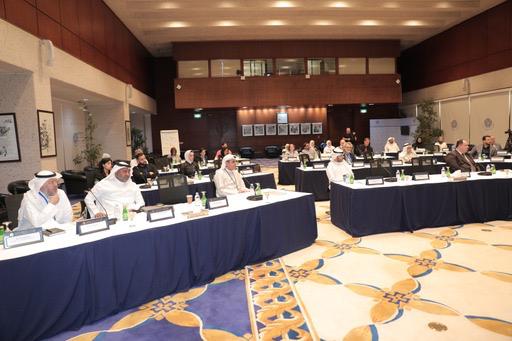Cooperation to Combat Regional Sand and Dust Storms Kuwait
The UK Foreign Commonwealth and Development Office (FCDO) and the Kuwait Fund for Arab Economic Development (KFAED) co-hosted a two-day consultation to plan the next stage of the UK and Kuwait’s partnership on combating sand and dust storms, which was announced at COP28 last December.
The Middle East and North Africa region is highly vulnerable to climate change and desertification, experiencing a notable increase in the number of sand and dust storms over the past two decades. Tackling these storms is an urgent priority, with the World Meteorological Organisation warning they pose significant health risks, and the World Bank estimating their economic cost to the region – taking account of damage or disruption to infrastructure and agricultural production – to total over $150 billion a year.
The UK and Kuwait are seeking to address the challenges sand and dust storms present through the implementation of targeted projects and the provision of technical assistance to the Government of Iraq, where a number of storms emanate from – working collaboratively to maximise impact.
The consultation brought together experts from the Government of Iraq, UN Habitat, the Kuwait Institute for Scientific Research, the Middle East Green Initiative Sand and Dust Storm Warning Centre, the UK Met Office and the International Water Management Institute, in addition to representatives from the FCDO and KFAED. Attendees shared knowledge and expertise, presenting findings from a range of ongoing and past projects to help shape the next stage of efforts to address this regional environmental challenge, which will focus on strengthening forecasting and warning systems for sand and dust storms, and piloting nature-based solutions to reduce their frequency, severity, and impacts.
The Acting Director General of KFAED, Waleed Al-Bahar, said:
“We are very happy to host this important workshop to help address one of the main environmental challenges our region is facing. The devastating effects of sand and dust storms know no borders and effective collaborative efforts are vital in addressing the challenges they present. This workshop represents a critical milestone in our efforts to combat what is an increasingly difficult issue, which affects Kuwait, Iraq and the wider region. These storms pose significant risks to public health, infrastructure, and the environment. Through this initiative, and by partnering with key international and regional partners such as the FCDO and UN Habitat, we are aiming to address the root causes of these storms in a comprehensive and sustainable manner.”
His Majesty’s Ambassador to the State of Kuwait, HE Belinda Lewis said:
“The UK is proud to be part of efforts to combat what is a major economic, health and environmental issue facing this region. Addressing the challenge of climate change requires a coordinated global response, and it is therefore great to see a wide range of stakeholders representing multiple countries and international organizations taking part in this week’s consultation. The UK – having signed two MoUs with KFAED on joint support to UNICEF’s lifesaving work in Gaza and Yemen last month – is very keen to continue building its international development and humanitarian partnerships with Kuwait, with the aim of improving the lives of communities across the globe”.
Dr Vidhisha Samarasekara, Strategic Program Director, Water Climate Change and Resilience, for the International Water Management Institute (IWMI) said:
“The International Water Management Institute (IWMI) is excited to expand its work designing and implementing nature-based solutions to address pressing climate adaptation needs in the MENA region. Through project co-development with Iraqi, Kuwaiti, and regional stakeholders, IWMI is planning to increase the application of nature-based solutions to reduce the impacts of sand and dust storms in Iraq and beyond”.
Helen Ticehurst, UK Met Office Regional Lead for Middle East and North Africa, said:
“The UK Met Office, through its WISER MENA programme, is delighted to be working with the Government of Iraq, Kuwait Fund, UN Habitat, KISR and the FCDO. We are actively exploring how forecasts and warnings of sand and dust storms can play a role in triggering responses which can protect communities and infrastructure from the impacts of these hazards.”


Comments are closed.